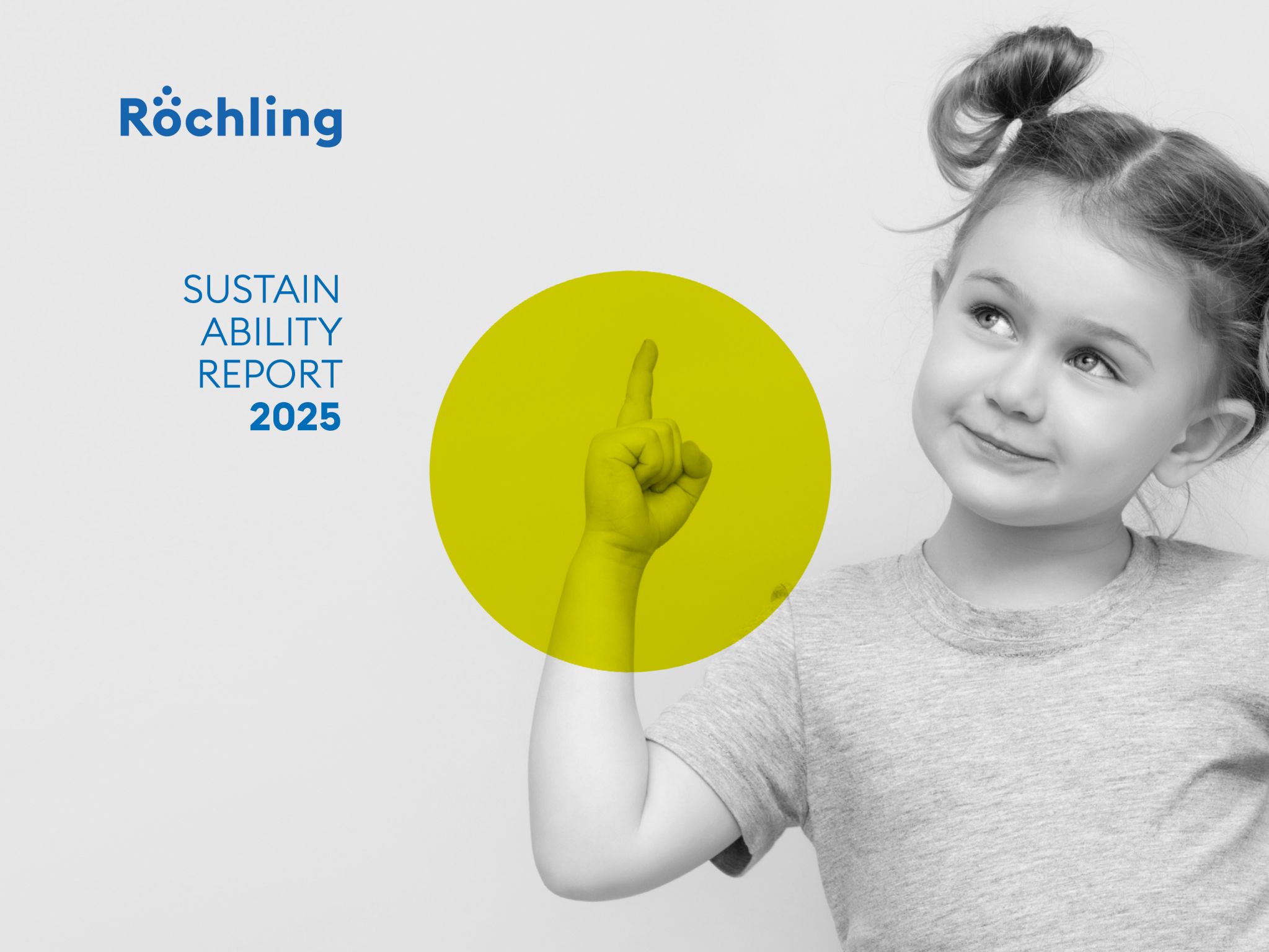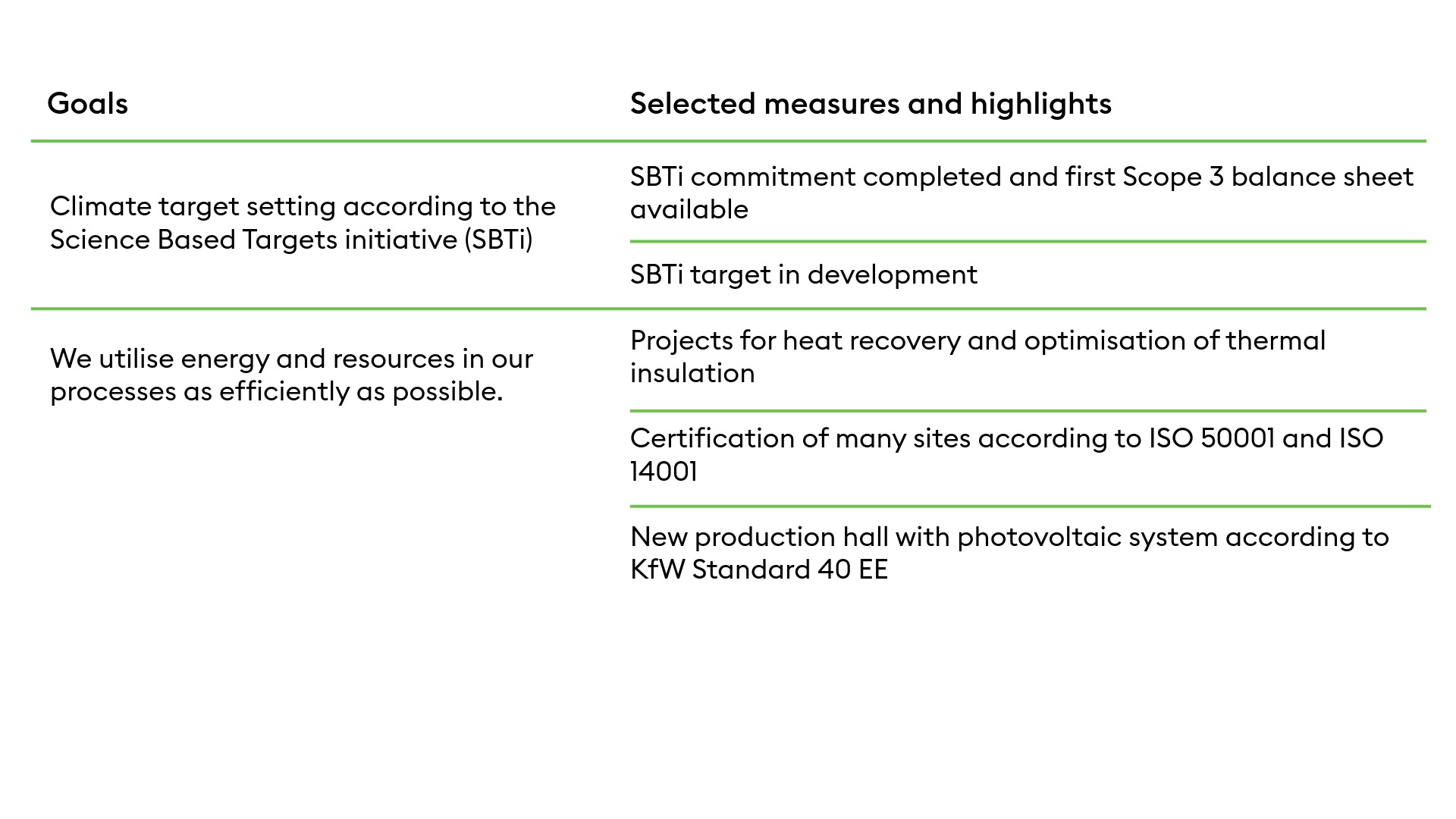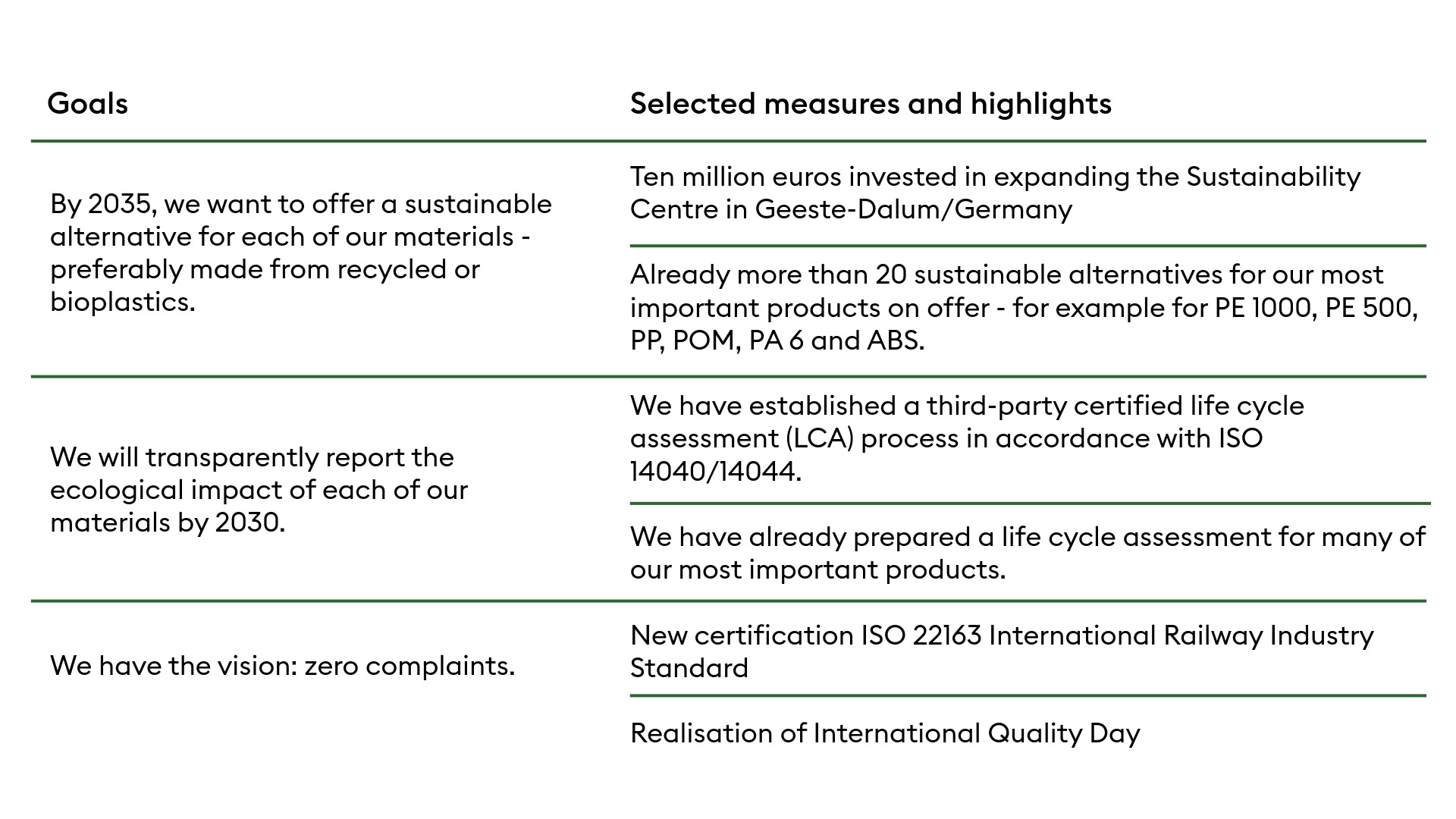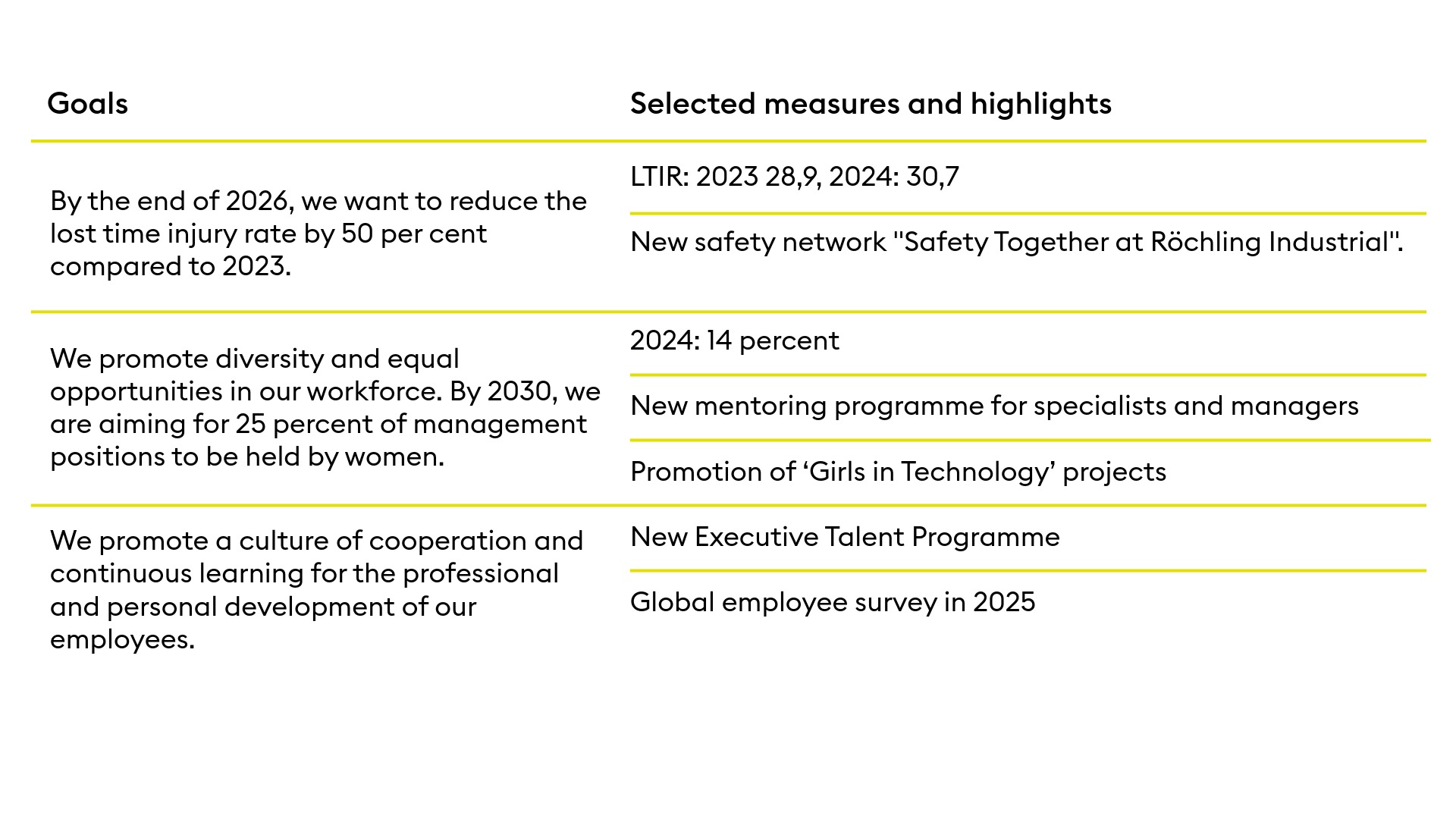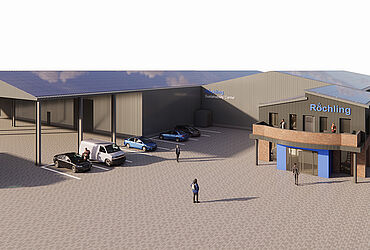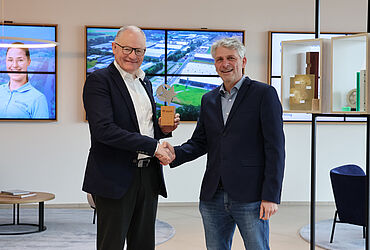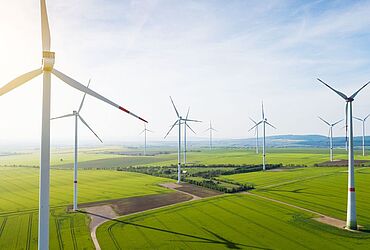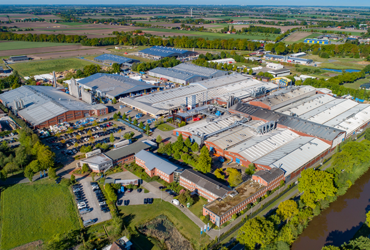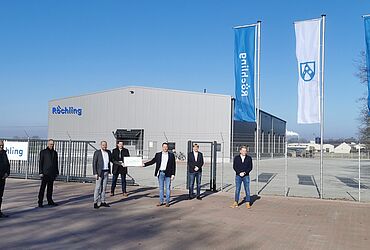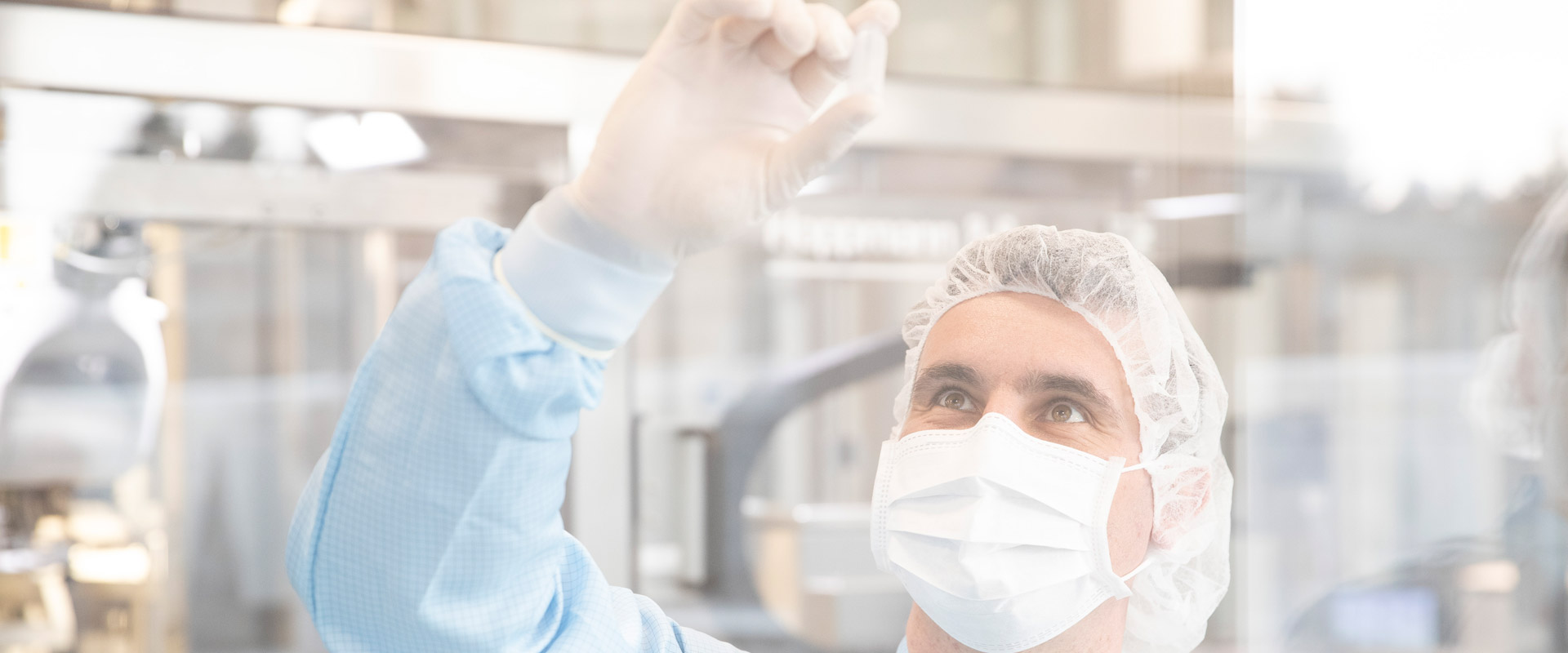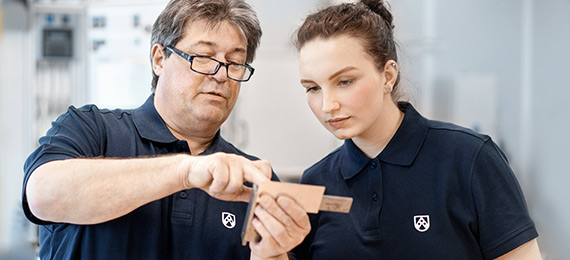Acting for tomorrow
As a family company, we at Röchling stand for value-based and sustainable action. We treat the environment and society as we do our customers, partners and employees: with mutual respect, great regard and considerable trust. We divide our focus topics into the three fields of action Products, People, Planet.
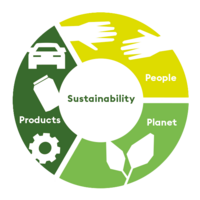
Products
The focus is on our products and therefore our customers. We create competitive advantages for our customers and actively support them in achieving their sustainability goals. Our focus topics:
Sustainable products & innovations
With our sustainable products and innovations we contribute to the sustainability of our customers' applications and conserve resources.

Circular economy
We are strengthening the circular economy as one of the most important tasks of the plastics industry. We pursue different approaches for the individual requirements of our company divisions.

Product quality & product safety
We continuously optimize the quality and safety of our products with clearly defined processes and responsibilities.

People
The focus is on our more than 11,700 employees. We are continuously working on a sustainable, safe and diverse working environment. Our focus topics are:
Attractive workplace & employee development
We attach great importance to recognizing, promoting and developing the potential of our employees. An attractive working environment with motivated, qualified and inquisitive employees is of great importance for securing the future of our company.

Occupational health & safety
We systematically take a wide range of measures to continuously optimize safety at work and to promote the health of our more than 11,700 employees worldwide. The health of our employees is our top priority. Occupational safety, health protection and prevention are firmly anchored in our corporate guidelines.

Diversity, inclusion & equal opportunity
As an international company, we focus on diversity, equal opportunities and the compatibility of family and work. This is reflected in a wide range of measures in our three corporate divisions.

Planet
The focus is on our environment. We are constantly reducing our ecological footprint. Our focus topics are:
Climate change
We are systematically reducing our greenhouse gas footprint through measures to increase efficiency, procurement and self-sufficiency.

Responsible use of energy & resources
We use energy and resources in our processes as efficiently as possible and handle them responsibly.

Goals
Certified and evaluated by independent service providers
We regularly have our processes and sustainability activities audited and certified by independent service providers. This increases the transparency of our activities and at the same time improves sustainability along the entire supply chain. Our sustainability certifications and ratings include:
With our "Integrated Management System", we at Röchling Industrial work continuously on the systematic optimization of all quality factors. Many of our Industrial sites are certified according to the internationally valid IMS standards. These include certifications that contribute to the improvement of sustainability activities, such as
DIN EN ISO 14001 - Environmental management: ISO 14001 specifies requirements for the environmentally friendly orientation of operational processes. We systematically plan and optimize our processes and procedures in accordance with the requirements of the standard and thus continuously improve the use of resources in our company. This includes, for example, the careful use of resources in the manufacturing process and the avoidance of waste in production and in the office.
DIN EN ISO 50001 - Energy management: The conscious use of energy and resources is firmly anchored in our corporate guidelines. DIN ISO 50001 describes the requirements for companies to introduce and implement an energy management system. We systematically record and control our energy flows in accordance with the requirements of the standard. This enables us to regularly identify potential savings and use our resources more sustainably.
DIN ISO 45001 - Occupational health and safety: The health of our employees is our top priority. The standard facilitates the integration of occupational health and safety in all business processes and creates an even better awareness of safety in the workplace at all levels.
Sustainability along the entire supply chain plays a decisive role for Röchling Industrial. In order to increase transparency and sustainability, we have already had several sites certified according to the international standard ISCC PLUS. ISCC PLUS (International Sustainability & Carbon Certification) is one of the world's leading certification systems for the use of bio-based and recycled raw materials. The aim is to reduce the use of fossil raw materials and conserve resources.
- More information on ISCC PLUS for mass-balanced bioplastics here
